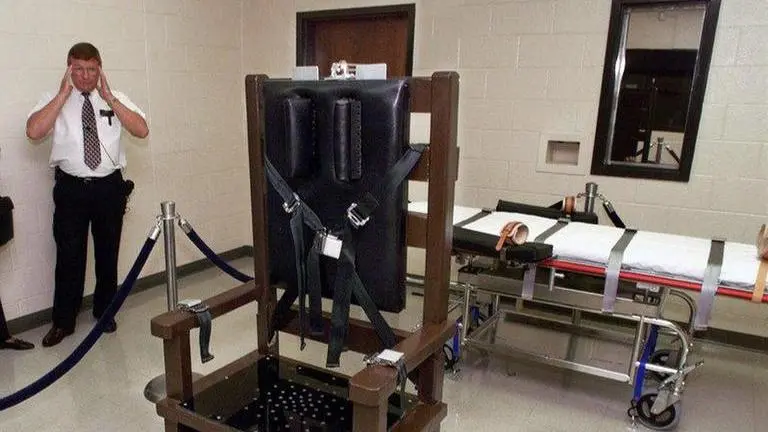Updated 18 April 2020 at 12:03 IST
Tennessee delays June execution due to coronavirus
Tennessee's Supreme Court on Friday postponed the scheduled execution of a death row prisoner by eight months because of the coronavirus.
- World News
- 2 min read

Tennessee's Supreme Court on Friday postponed the scheduled execution of a death row prisoner by eight months because of the coronavirus.
Oscar Smith had been sentenced to die on June 4 for the murders of his estranged wife, Judy Lynn Smith, and her two sons from a previous marriage, Chad and Jason Burnett, in Nashville. On Friday, the court granted a motion requested by Smith's attorneys to delay his execution. Smith's new execution date is Feb. 4, 2021.
In asking for the delay last month, Smith's attorneys said they had lost critical time to work on his case due to the restrictions put in place to stop the spread of the coronavirus. It would be irresponsible for attorneys to conduct interviews, travel, meet with Smith and carry out other tasks during the outbreak as they pursued clemency and court challenges, they argued.
Attorney General Herbert Slatery’s office argued that the clemency efforts and the existing appeals were not legitimate reasons to delay the execution. However, the attorneys wrote that the Tennessee Supreme Court is “in the best position to determine whether a stay of execution should be granted in response to coronavirus-related issues affecting the courts of this State.”
Advertisement
Smith’s lawyers also argued that holding an execution during a pandemic would require special safeguards to protect witnesses whose presence could risk transmitting the virus to staff and inmates at Riverbend Maximum Security Institution. Texas has already delayed five executions due to the outbreak.
For most people, the new coronavirus causes mild or moderate symptoms that usually clear up within weeks. For some, it can cause severe illness and be life-threatening.
Advertisement
The court's Friday order was brief, simply granting the delay request without further comment.
In an emailed response, Smith's attorney Kelley Henry wrote that the court made the right call.
“It makes no sense to bring execution witnesses and other people into the prison and possibly expose them to COVID-19 infection or introduce the virus into the prison population,” Henry wrote.
“Mr. Smith, who has always maintained his innocence, needs to meet with his attorneys to prepare a clemency petition and investigators need to interview people to get information for the clemency petition. None of that face-to-face work can happen at this time without risking public health.”
The Attorney General's Office had no comment on the order.
Published By : Associated Press Television News
Published On: 18 April 2020 at 12:03 IST
